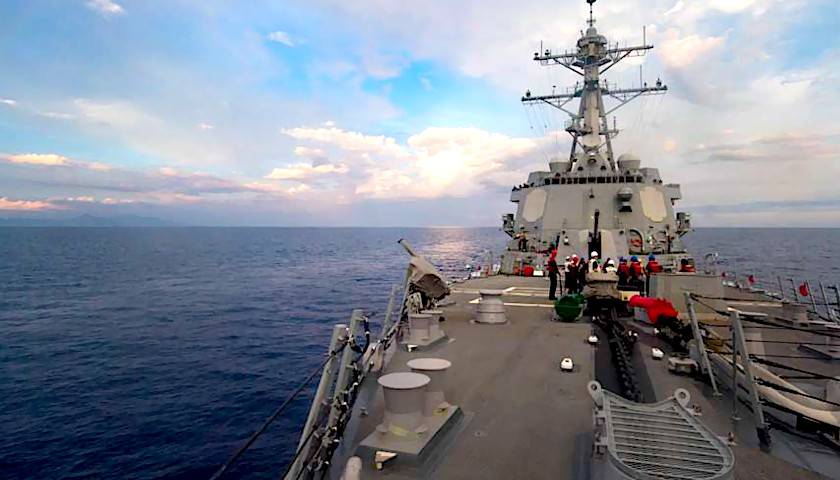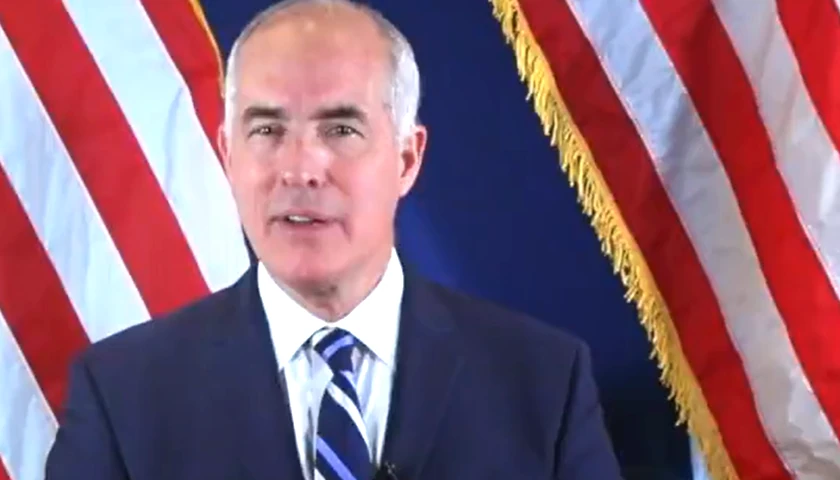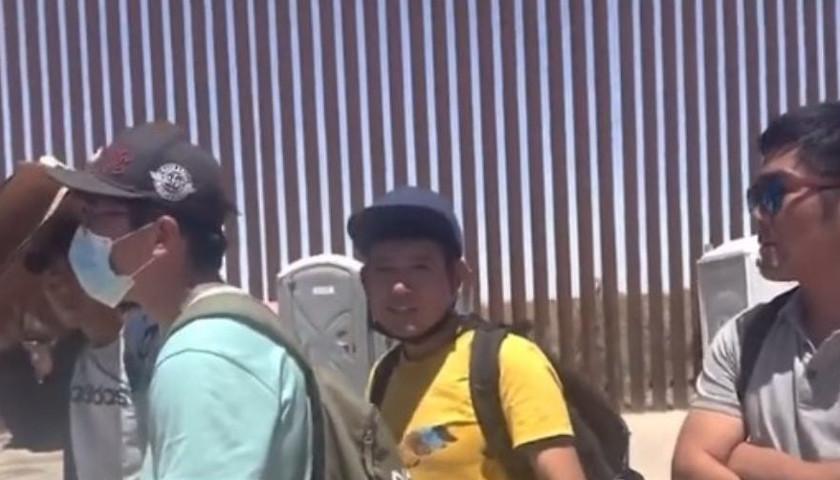by James E. Fanell and Bradley A. Thayer
A recent survey of 52 so-called “leading experts” by the Center for Strategic and International Studies (CSIS) China Power Project did not think the People’s Republic of China (PRC) was capable of conducting an “effective invasion” of Taiwan today and not likely in the rest of this decade. Despite these prognostications, the Chinese Communist Party (CCP) has not received the word. Despite the assessment of “leading experts,” the CCP has once again demonstrated that they are continuing their preparations to conquer Taiwan.
In an important, if subtle, measure, the PRC’s Civil Aviation Administration (CAA) announced that as of February 1, 2024, an offset measure that had been applied to the M503 air route, which was created in 2015 for flights transiting from north to south in the Taiwan Strait, would be cancelled. This cancellation would allow aircraft to transit within 7 kilometers of the centerline. Additionally, in the same announcement, the CAA reported the activation of two routes (W122 and W123) that connect the M503 route to west-to-east routes from the mainland cities of Fuzhou and Xiamen in the PRC’s Fujian Province directly across from Taiwan.
This is a direct threat to Taiwan. The consequence of what the PRC did is that their aircraft transiting in the Taiwan Strait would now be able to operate closer to Taiwan and in much larger numbers. That places greater pressure on Taiwan’s air defenses as it shortens their time to respond and adds further complications to an already complex air defense environment.
While Beijing asserted this announcement was a simple and justified “adjustment under the one-China principle, within the scope of China’s sovereignty, and out of the need for civil aviation safety and convenience,” the reality is that this change represents another incremental change in the cross-strait security environment in favor of the PRC’s ability to launch an invasion from a position of closer proximity and with an increasing number of aircraft than have previously operated in the strait.
The strategic salience of this action is captured by the fact that from 1954 to 2020 PLA aircraft only crossed the centerline four times, yet from 2020 to 2022 PLA combat aircraft have crossed the centerline over 2,200 times.
This trend line is worrisome. It is the result of the PRC’s attempt to change the status quo in the cross-strait security environment. Actions that were once considered provocative are now just seen as the new normal. For instance, as reported by the Taiwan Ministry of Defense and military observers, just in the month of January, approximately 300 PLA aircraft were detected, 30 plus territorial airspace violations, and 71 Taiwan Air Defense Identification Zone (ADIZ) inclusions to include 54 balloons, of which 17 overflights of the main island.
So, in the space of just three years, largely since the Biden administration, the PRC has dramatically altered the daily presence of PLA forces in the Taiwan Strait and now in the waters surrounding Taiwan, as reported on January 31, when four PLA Navy warships were operating around Taiwan. That brought the total number for January to 136 naval combatants that were detected operating around Taiwan.
The world needs to appreciate how the PRC is changing expectations of the status quo as it moves toward invasion. If the PLA had deployed this many combat aircraft and naval warships around Taiwan just a decade ago, it would have generated a much greater response from the United States, as it would have been an indication and warning of a PRC attack. The same can be said for activity by the PRC’s Strategic Rocket Force, which has recently been maligned as corrupt and unprofessional. Recall that in 1995–1996, the PRC fired a handful of ballistic missiles north and south of Taiwan, and in response, President Clinton dispatched two aircraft carriers to the area around Taiwan. Yet, in 2022, when the PLA fired nearly a dozen ballistic missiles around Taiwan, the U.S. and our allies did not respond as they had 25 years earlier.
The strategic trend line and strategy used by the CCP are clear to anyone who wishes to see the threat. The slow, incremental increases to the volume and operational tempo of PLA operations around Taiwan and other key military areas in the Western Pacific have had the effect of numbing America and Taiwan’s national decision-makers to the seriousness of this military threat. The PRC’s actions have antecedents in military history. The Egyptians undertook similar actions against Israel before the 1973 Yom Kippur War. In the past, the U.S. was acutely attentive to this danger. For example, on NATO’s central front, NATO militaries were always attentive to Warsaw Pact exercises, as they anticipated that the exercise would mask the increased tempo that was a prelude to war. What makes the present situation even more extraordinary is that the U.S. and Taiwanese militaries are aware of what is going on, they know the playbook, and they have been warning Washington and Taipei. But to no effect.
The best analogy to explain this situation is that of a frog in a pot of water where the temperature is slowly increasing over time, until such a point that the frog is boiled to death in the pot. Had it been plopped into a pot of boiling water from the beginning, it would have jumped out in excruciating pain.
The question for American’s who can see this threat and understand how these slow improvements in military posture enable the PRC to conduct an invasion is: how may we convince those who are in power to respond to this dramatic threat posture? This is obviously compounded when America’s so-called “experts” appear to be blinded to this situation. The day-to-day strategic situation matters, but equally necessary is an understanding of the longitudinal changes, which indicate clearly how events are worsening and dramatically so.
– – –
James E. Fanell and Bradley A. Thayer are coauthors of the forthcoming book, Embracing Communist China: America’s Greatest Strategic Failure.




